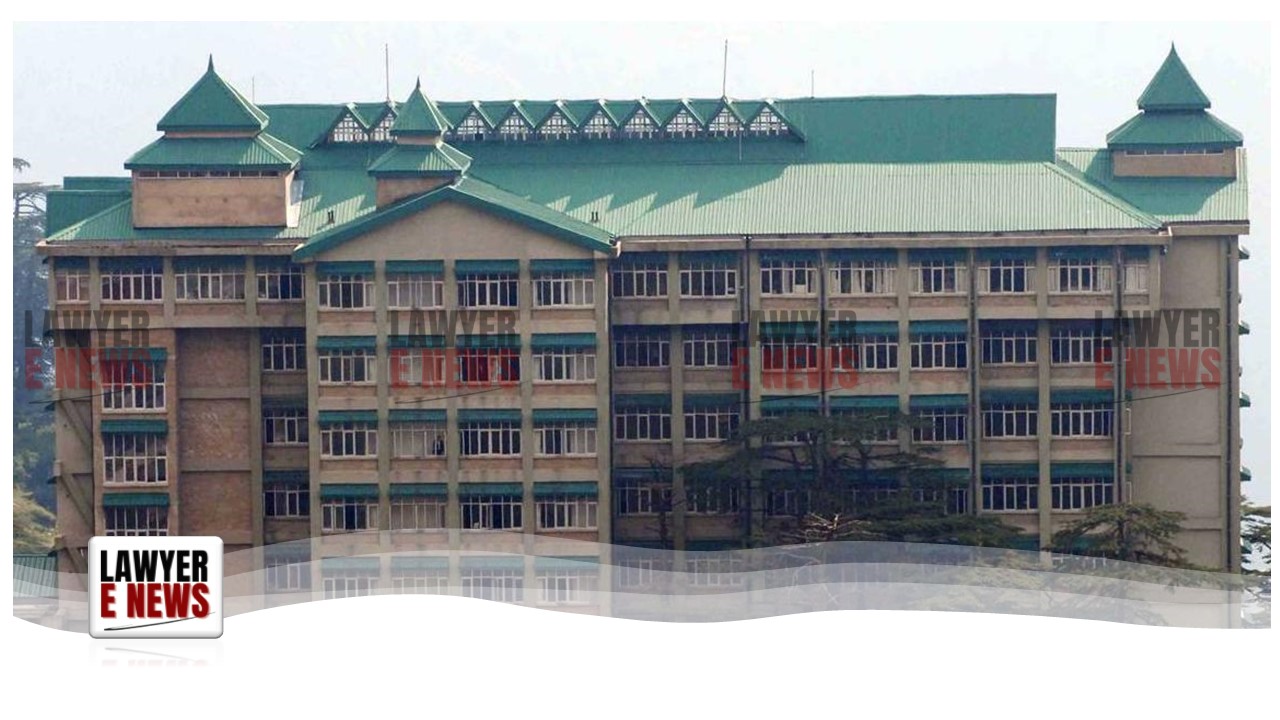-
by Admin
16 February 2026 1:47 PM



Himachal Pradesh High Court delivered a significant ruling addressing the imperatives of fair investigation under constitutional and procedural law. The Court dismissed the State’s appeal against the acquittal of Chohan Singh and others, accused of fraud and forgery under the IPC and the Prevention of Corruption Act, 1988. The judgment highlights lapses in the prosecution's handling of evidence and underscores that criminal trials should not proceed without credible proof.
The case stems from an FIR registered on February 6, 2008, by the Vigilance and Anti-Corruption Bureau, Kullu, following an anonymous complaint about irregularities in the Himachal Pradesh Board of School Education (HPBOSE). It was alleged that Chohan Singh, a student with a compartment in English in his 10+1 examination, fraudulently manipulated his marks and changed his roll number with the connivance of board officials. He allegedly submitted false information to correct his mother’s name in official records and procured certificates fraudulently.
The trial court had earlier acquitted the accused on June 1, 2012, citing insufficient evidence. The State appealed, contesting the acquittal and alleging that the respondents cheated the Board and tampered with official records. The accused were charged under Sections 420, 467, 468, 471, and 120-B of the IPC, along with Section 13(2) of the Prevention of Corruption Act.
The Court analyzed whether the prosecution had established the guilt of the accused beyond a reasonable doubt. The prosecution relied on documents such as the marks sheets, gazette entries, and application forms, alongside witness testimony. However, the defense highlighted procedural lapses and discrepancies in the evidence, including inconsistencies in roll numbers and the absence of key documents like admit cards, answer sheets, and award lists.
Justice Vivek Singh Thakur emphasized that the investigating agency failed to preserve crucial evidence, undermining the prosecution’s case. The Court remarked that the investigation lacked fairness and neutrality, as the Investigating Officer admitted to not seizing documents that could have proved the innocence of the accused. The judgment underscored that selective presentation of evidence violates the principles of justice and due process.
The High Court upheld the trial court’s decision, stating that the evidence on record was insufficient to convict the accused. The Court observed that discrepancies in roll numbers could result from clerical errors, and the dual identification of the accused's mother’s name in various records (as Roshana Devi and Churamani) did not conclusively establish fraud. The judgment noted that the prosecution’s failure to produce crucial evidence, such as attendance sheets or admit cards, severely weakened its case.
The Court drew on Supreme Court precedents to emphasize that unmerited prosecutions infringe on Article 21 of the Constitution, which guarantees the right to life and liberty. It held that the investigating agency is obligated to conduct an unbiased inquiry and present all evidence, both incriminating and exculpatory, before the court.
"The duty of the investigating agency is to ensure a fair investigation, devoid of bias, and to present the entire truth before the court. Withholding evidence favorable to the accused undermines the integrity of the justice system."
In a significant move, the Court directed the Additional Chief Secretary (Home), the Director General of Police, and the Director of Prosecution to implement measures ensuring fair investigation and prosecution. The judgment called for training and monitoring mechanisms for investigators and prosecutors to prevent the selective presentation of evidence.
The Himachal Pradesh High Court’s judgment in State of Himachal Pradesh v. Chohan Singh & Others serves as a critical reminder of the principles of fair investigation and due process. By emphasizing the prosecution’s duty to uphold justice rather than seek convictions at all costs, the ruling safeguards the constitutional rights of the accused and strengthens the framework of criminal jurisprudence.
Date of Decision: November 5, 2024
